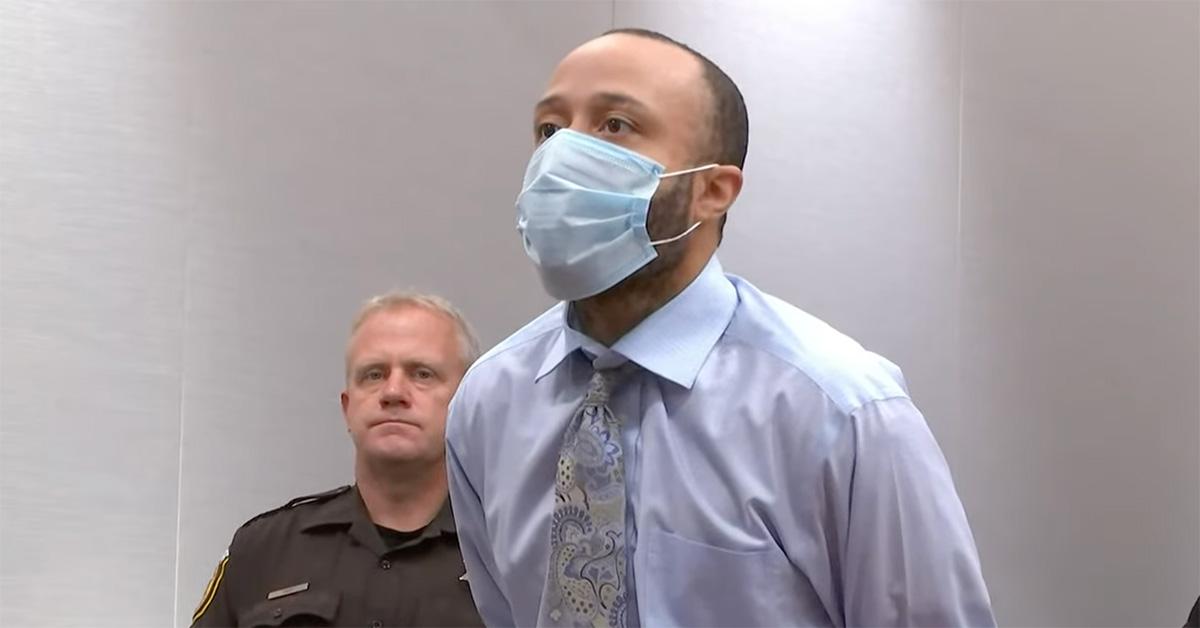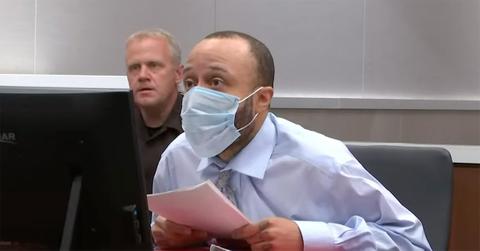Darrell Brooks Invoked His Family During His Closing Arguments — Who Are They?
Published Oct. 26 2022, 10:59 a.m. ET
Closing arguments were delivered on Tuesday in the trial of Darrell Brooks, a man who has been accused of intentionally driving his car through a Christmas parade in Waukesha, Wisconsin, last year. The incident left six dead and dozens more injured, and the aftermath of the case has been closely watched around the country. In his closing statement, Brooks insisted that he had not intended to hurt anyone.
What did Brooks say in his closing argument?
In his closing, Brooks, who is representing himself in the trial, asked the jury to consider whether it was possible that his car had malfunctioned.
“What if the vehicle couldn’t stop because of malfunction? What if the driver of the vehicle was unable to stop the vehicle? Because of that fact, what if the driver may have panicked? Does that make the driver in a rage and intent on killing people?” he asked.

“I’ve never heard of someone trying to intentionally hurt someone while attempting to blow their horn while attempting to alert people of their presence,” he added. Brooks also tried to claim that the car he was driving that day had an active recall out on it, although the judge in the trial insisted that those comments be stricken from the record.
He also asked the jury to consider the impact that this trial and the negative press around it had had on his family. He added that he was at peace with God, and told the jury that they should also make peace with whatever they decide.
It remains to be seen whether his arguments will be enough to sway the jury, but his argument did leave some with more questions about Brooks's family.
How many kids does Darrell Brooks have?
Because he mentioned his family during his closing remarks, many wanted to know more about his family life. According to Fox News reporting, Brooks has a total of three kids and owes more than $40,000 in connection with a paternity case for one of his kids. The names of Brooks's kids have been intentionally withheld from media reporting to avoid bringing further scrutiny on them.
Brooks has been disruptive throughout his trial.
At the inception of his trial, Brooks pleaded not guilty to more than 70 charges, including six charges of first-degree homicide. He initially pleaded not guilty by reason of insanity, but his public defenders later withdrew that claim and then filed a petition asking to be removed from the case. In the end, the judge ruled that Brooks could be allowed to represent himself at the trial.
Since then, Brooks has been consistently disruptive throughout the trial, and has been prone to interruptions and outbursts. As a result, the judge has frequently removed Brooks from the courtroom and placed him in a nearby room where he can participate in the trial via video camera and microphone. When Brooks is not supposed to speak, his microphone is usually muted to limit disruptions.
